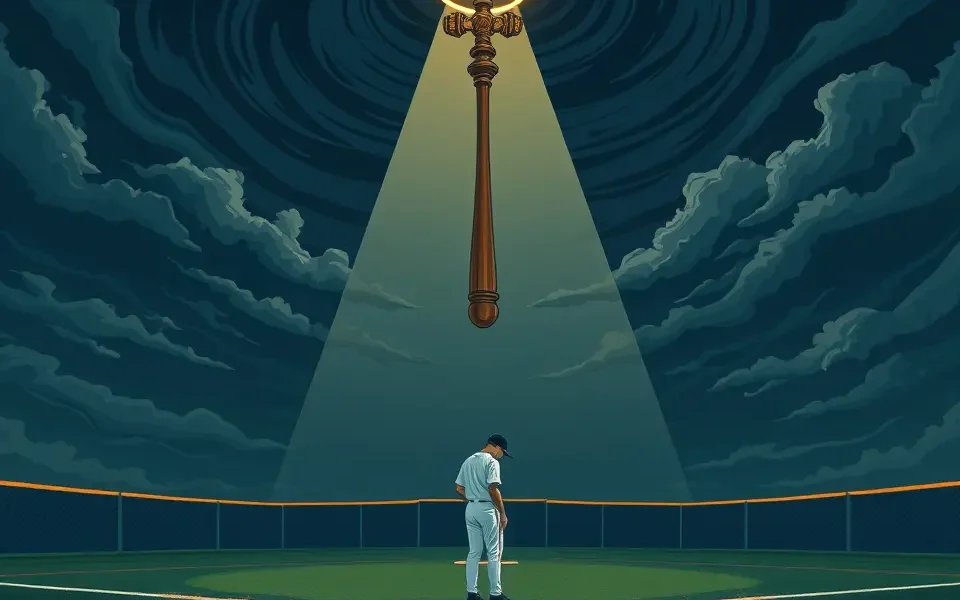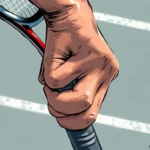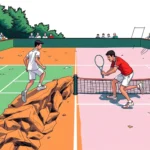The tennis world remains divided over the recent suspension of world number one, Jannik Sinner, following two positive doping tests in March 2024. While the World Anti-Doping Agency (WADA) and Sinner reached a settlement resulting in a three-month ban, effective from February 9 to May 4, 2025, the decision continues to fuel passionate debate within the sport. Adding fuel to the fire, International Tennis Hall of Fame president Patrick McEnroe has publicly stated his disagreement with the suspension, igniting further discussion about fairness, precedent, and the handling of doping cases in tennis.
The Case Against the Ban
Patrick McEnroe’s vocal opposition to Sinner’s suspension highlights a key argument: the process, according to him, was followed correctly, and the evidence suggests Sinner was not at fault. “I don’t think he should have been suspended,” McEnroe stated. “They went through the process exactly as it was meant to go.”
McEnroe’s Rationale
McEnroe’s argument centers on the following points:
- Adherence to Protocol: He believes the established procedures for handling doping cases were correctly followed in Sinner’s situation.
- Lack of Intent: WADA itself acknowledged that Sinner did not intentionally cheat or gain any competitive advantage from the substance.
- Entourage Negligence: The positive tests were attributed to the negligence of Sinner’s physiotherapist, who inadvertently exposed him to the banned substance clostebol.
- Precedent: McEnroe finds it “absurd” to punish Sinner based on the argument that other players might have been treated unfairly in the past.
McEnroe’s stance underscores the complexity of doping cases, particularly when unintentional contamination is a factor. His comments also draw attention to the debate surrounding the principle of “strict liability,” where athletes are held responsible for any prohibited substance found in their system, regardless of intent.
The Doping Controversy: A Deep Dive
To fully understand the context of McEnroe’s statement, it’s essential to examine the details surrounding Jannik Sinner’s doping controversy:
Positive Tests and Explanation
In March 2024, Sinner tested positive for traces of clostebol, an anabolic steroid, on two separate occasions. Clostebol is a prohibited substance in sports due to its potential performance-enhancing effects. However, it also has legitimate medical uses, including dermatological and ophthalmological treatments.
Sinner maintained his innocence, explaining that the clostebol entered his system unintentionally through his physiotherapist. According to Sinner, the physiotherapist had been prescribed a medication containing clostebol for a cut on his finger and, during massages, inadvertently transferred the substance to Sinner’s skin.
ITIA Investigation and WADA Appeal
The International Tennis Integrity Agency (ITIA), the anti-corruption body for tennis, initially investigated Sinner’s case. The ITIA accepted Sinner’s explanation of “no fault” and did not impose a suspension. However, WADA appealed this decision to the Court of Arbitration for Sport (CAS), seeking a ban of up to two years.
Settlement Agreement and Suspension
Facing a potentially lengthy and damaging legal battle, Sinner ultimately reached a settlement agreement with WADA. Under the terms of the agreement, Sinner accepted a three-month suspension, running from February 9 to May 4, 2025. WADA acknowledged that Sinner did not intend to cheat and did not gain any competitive advantage from the substance.
WADA’s Rationale
Despite acknowledging Sinner’s lack of intent, WADA justified the suspension based on the principle of strict liability. WADA argued that athletes are responsible for the actions of their entourage and must ensure that no prohibited substances enter their system.
The Fallout and Wider Implications
The Sinner doping controversy and subsequent suspension have had significant repercussions for the player and the sport:
Missed Tournaments
Sinner’s suspension has forced him to miss several important tournaments, including the hard-court phase, the Monte Carlo Masters, and the Madrid Open. He will be eligible to return to competition in time for the French Open, which begins on May 25.
Laureus Award Exclusion
Due to the suspension, Sinner was excluded from nominations for the prestigious Laureus World Sportsman of the Year Award.
Impact on Ranking
While Sinner will lose ranking points due to the ban, he is expected to remain the world number one.
Questions of Fairness and Consistency
The Sinner case has raised questions about the fairness and consistency of anti-doping enforcement in tennis. Some observers have suggested that Sinner received preferential treatment due to his status as a top player. Others have argued that the principle of strict liability is too harsh, particularly in cases of unintentional contamination.
Dangerous Precedent?
Critics of the settlement also suggest that it sets a dangerous precedent, where high profile players are treated differently.
A Divided Tennis Community
The Sinner controversy has exposed deep divisions within the tennis community. While some players have expressed support for Sinner, others have questioned the leniency of the suspension.
Support for Sinner
Many players believe that Sinner is innocent and did not intentionally cheat. Some have argued that he should not be punished for the negligence of his physiotherapist.
Concerns About Preferential Treatment
Other players have voiced concerns that Sinner received preferential treatment due to his status as a top player. They argue that all athletes should be held to the same standards, regardless of their ranking or popularity.
The Debate Over Strict Liability
The Sinner case has reignited the debate over the principle of strict liability in sports. Some argue that the rule is necessary to deter doping and protect the integrity of sport. Others contend that it is unfair to punish athletes for unintentional violations, particularly when they did not gain any competitive advantage.
The Road Ahead
As Jannik Sinner prepares to return to the court after his suspension, the doping controversy will likely continue to linger. The case has raised important questions about fairness, consistency, and the application of anti-doping rules in tennis.
Lessons Learned
The Sinner case offers several important lessons for athletes, coaches, and anti-doping organizations:
- Education: Athletes and their entourages must be thoroughly educated about prohibited substances and the risks of contamination.
- Vigilance: Athletes must be vigilant about the products and medications they use and ensure that they do not contain any prohibited substances.
- Responsibility: Athletes are responsible for the actions of their entourage and must take steps to ensure that their team members are knowledgeable about anti-doping rules.
- Transparency: Anti-doping organizations must be transparent in their decision-making processes and ensure that all athletes are treated fairly and consistently.
A Call for Reform
The Sinner controversy may also serve as a catalyst for reform in the way anti-doping rules are applied in tennis and other sports. Some possible reforms include:
- Revisiting Strict Liability: Reviewing the principle of strict liability to allow for more flexibility in cases of unintentional contamination.
- Independent Investigations: Strengthening the independence of anti-doping investigations to ensure that they are free from bias or influence.
- Increased Transparency: Improving transparency in anti-doping decision-making processes to build trust and confidence in the system.
Conclusion: Striking a Balance
The Jannik Sinner doping controversy underscores the complexities of maintaining a fair and clean sport. Striking a balance between deterring intentional cheating and protecting athletes from unintentional violations is a difficult but essential task. As the tennis world moves forward, it is crucial to learn from the Sinner case and work towards a more just and equitable anti-doping system. The opinion of Patrick McEnroe, as a Hall of Fame president, is a notable contribution to this ongoing discussion.








No Comment! Be the first one.